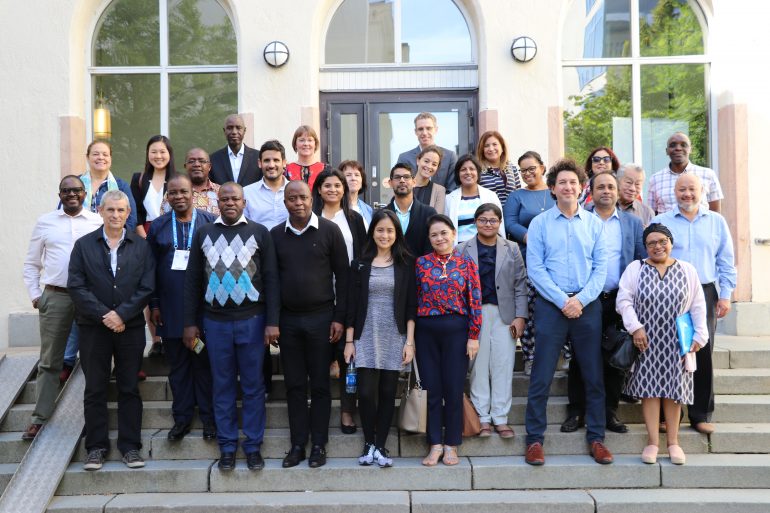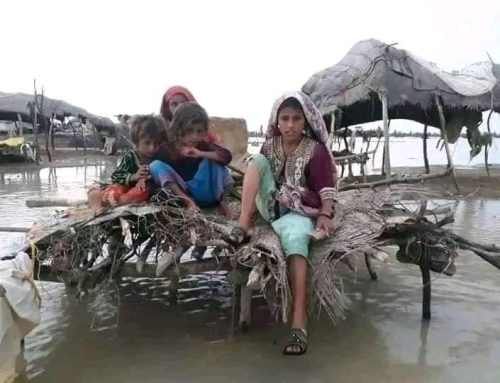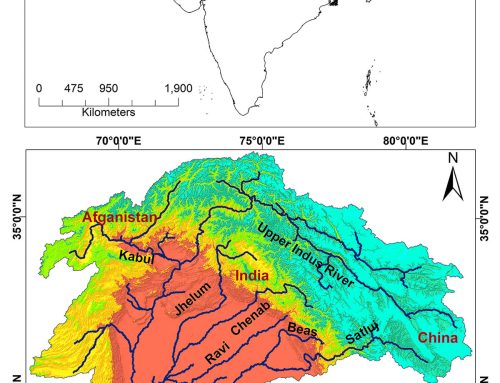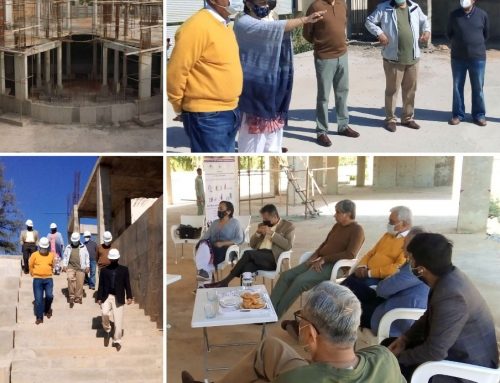On 29-30 August, Cap-Net held the Annual Networks Managers and Partners meeting 2019 in Stockholm. The meeting took place at the Tele2 Arena (World Water Week venue) and the Global Water Partnership offices. A key topic during the meeting was the design, implementation and development of synergies and collaboration with a focus on the new alliance between the Global Water Partnership and Cap-Net UNDP.
“Cap-Net Secretariat took the bold decision to have the Networks Managers and Partners Meeting in Stockholm, to enhance interaction with the Global Water Partnership, but also to capitalize on World Water Week”, said Cap-Net director Themba Gumbo.
On Thursday 29th August, the first session was dedicated to: SDG implementation; Themes in 2020 and beyond within the Global Water Governance Support Programme. UNDP Senior Water Advisor, Water & Ocean Governance Programme Marianne Kjellen highlighted that “Cap-Net is now implemented through GWP administratively. But the whole purpose is to join hands in the water sector, towards implementing water reform in a more coherent way”.
The following session of the meeting was entitled “Leaving no one behind – Capacity development for inclusive development”, and focused on partners’ experiences in collaboration and synergies. CAWST CEO Shauna Curry, stressed the “need to work across sectors to address real needs. If this route of collective minds can move forward of how you translate science to frontline practitioners, this would be a huge milestone”. Damian Indij, Cap-Net Virtual campus coordinator and leader of the session emphasised that the need for monitoring and measurement of the impact on the ground in order to show the work the organization does.
Subsequently, the session shifted to an interactive world café named “Marketplace: Learning and sharing; identifying opportunities to work together. Setting the stage for collaboration”. It comprised 7-minute pitches by Cap-Net partners answering the question: what is your organization currently involved in and how can we contribute? Sanaa Baxamoosa network manager Pakistan presented on Karachi Water Partnership where water and sanitation facilities were provided for over 400 teachers and 8,500 school children in 55 schools.
Afterwards, discussions on the SDG 6 implementation support programme were guided by answers to the question “What are we doing to implement the SDGs and how can we improve our outreach?”
GWP Chief Operations Officer Peter Repinsky stressed that: “The water agenda is too big for the water community to deal with it alone, that is why for us providing water solutions for SDGs is a strategic priority within our new strategy. We need to break cycles, and bring other actors on board: engage the private sector; youth and work towards gender equality. And we need to incorporate measure of progress into reports.”
Network Manager from Caribbean WaterNet Ronald Roopnarine emphasized that to improve outreach there is a need to “target people who are not technical experts”.
During the afternoon session, GWP Executive Secretary & CEO Monika Weber-Fahr conducted a session on the topic “Partners Learning Alliances”. Arguments were around the definitions of alliances and the dimensions of them: Communicate, Consult, Collaborate, Cooperate, Co-habitate, Merge.
On Friday 30th August the attention was put on the exploration of programmatic synergies between GWP and Cap-Net. A great addition to this conversation was done by the Network Managers analysing different examples of synergies in their own organizations.
Indika Gunawardana, Cap-Net Capacity Development Analyst highlighted that “planning for reporting on results; they don’t come by accident” when conducting the session on the Monitoring, Evaluation and Learning Plan (MELP) revision.
Lessons and experiences on virtual courses were brought to the table during the afternoon. Key topics in the dialogue included: course completion rates, support in the design, implementation and delivery of courses and most importantly monitoring and evaluation processes.
Managers and the Cap-Net secretariat also stressed the importance of communication as a key factor in the implementation of capacity building training and courses to reach bigger audiences and engage better. Different communication tools and strategies were examined to improve and move forward in matters of outreach and cooperation across the network.
The Cap-Net Networks Managers and Partners meetings ended with a renewed confidence in the networks and a shared vision of collaboration among all the institutions.




